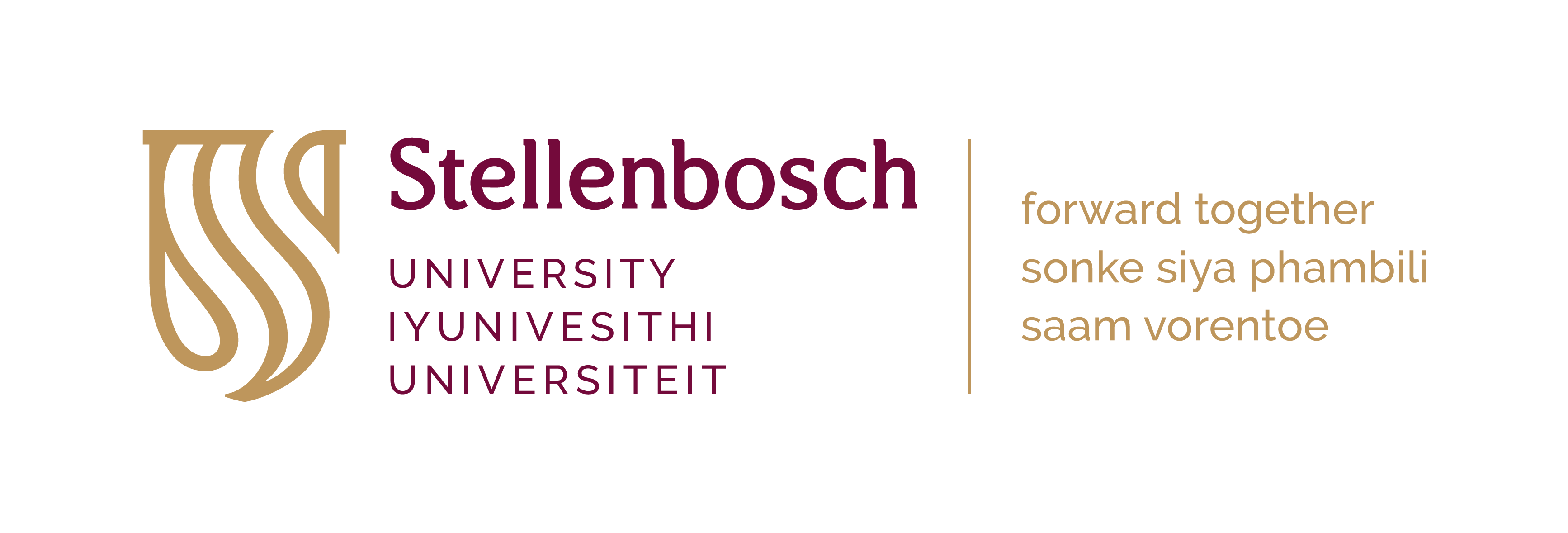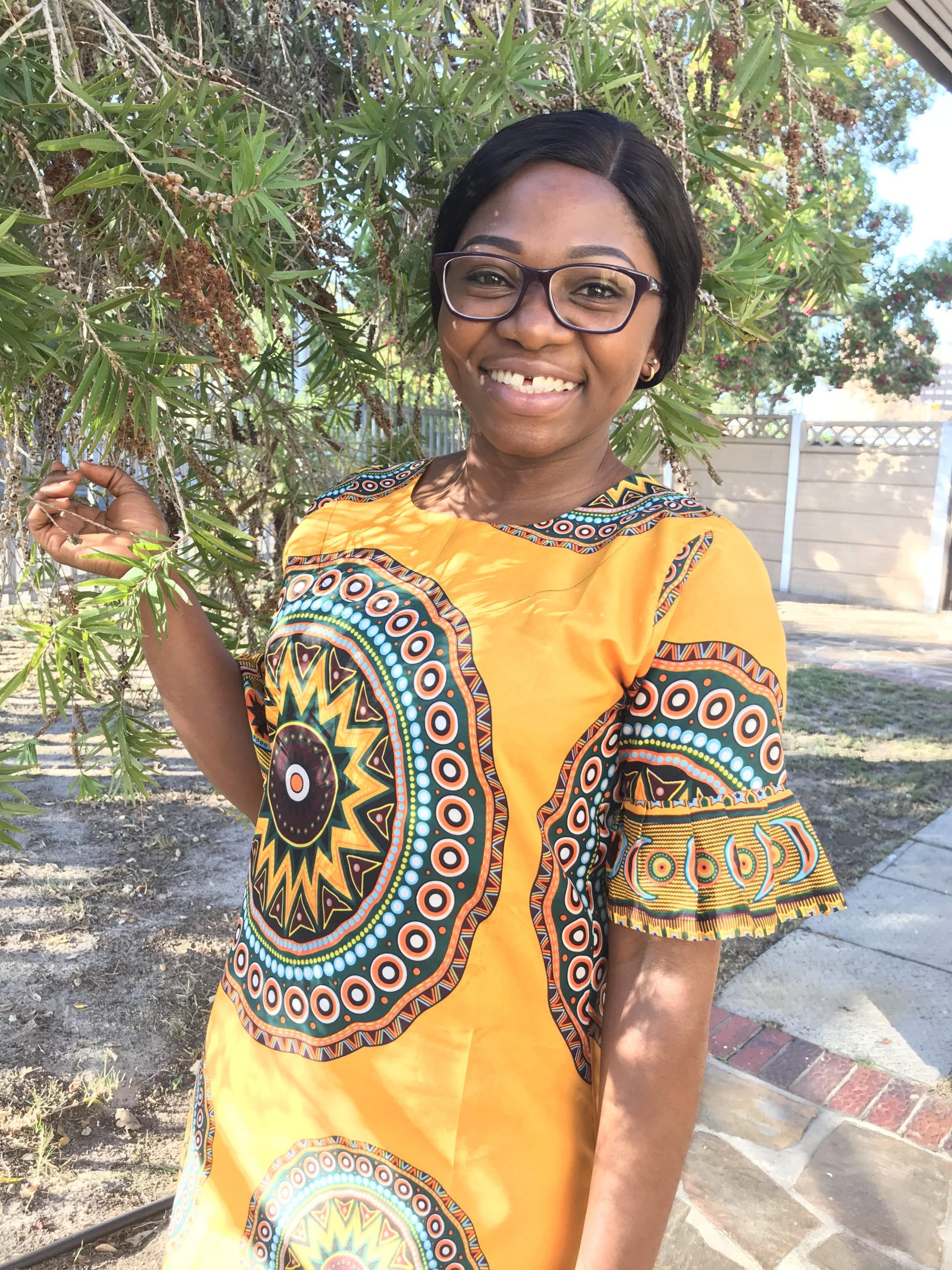[:en]Meet Miss Bih Hycenta Chendi, a doctoral candidate at the Faculty of Medicine, University of Oslo, Norway and affiliated student within the Immunology Research Group at Stellenbosch University’s Division of Molecular Biology and Human Genetics, Faculty of Medicine and Health Sciences.
In celebration of Youth Month 2020, the Division of Molecular Biology and Human Genetics is paying tribute to young researchers within our institute. We share heart-warming stories of our students whose lives give us great hope for the future of South Africa. We thank these students for volunteering to tell us a little about themselves and their research.
Tell us briefly about your background?
I was born in the English region of Cameroon. My parents later moved to the capital city Yaoundé, one of the French-speaking region where I grew up. I speak English and French, and like cooking and dancing.
I completed my bachelor’s degree in Biology of Animal Organism (Zoology) from the University of Yaoundé and master’s degree in Medical Immunology from the Catholic University of Central Africa/School of Health Sciences, Yaoundé.
Why did you choose your field of study – what or who inspired you? Is this what you envisioned for yourself growing up?
Throughout high school, I studied Biology, Chemistry, Physics and Mathematics and upon completion of my bachelor’s degree, understanding the science behind human biology has since then become my career drive. Carrying out my master’s project on HIV/AIDS, assessing patient’s response to antiretroviral drug, created the desire to further work in fields of public health concern.
I grew up with the passion of becoming a medical doctor and at a tender age, people called me Doctor Hycenta. Getting to know I was named Hycenta after the mid-wife who took care of my mom at the time I was born and who later became a doctor and opened a clinic, became an inspiration to me. This motivated my choice of subjects I studied at high school with the objective of getting into a medical school, which I did not have the chance to. However, being able to work in another domain in the health field still gives me satisfaction as I have great pleasure doing research.
What is your research focus on?
My research focuses on investigating the usefulness of identified host inflammatory and gene expression patterns as biomarkers for tuberculosis in both high and low TB setting.
Several studies have described host protein and transcriptomic markers for TB. However, most of the studies conducted so far have not cross-validated biomarkers in participants from both high and low burden settings in the same study set up. The current study aims to cross-validate previously published biomarkers in specimens collected from Norway and South Africa and furthermore, evaluate the influence of demographic and ethnic factors and HIV co-infection on the performance of the biomarkers for predicting the risk of progression to TB, diagnosis active TB, and evaluating the efficacy of anti-TB therapy.
In a nutshell, my research activities include experiments in the lab, analysis data, reading and writing articles, participating in research meeting, attending workshops and short courses.
How can your research help to improve Africa and/or the lives of its people?
Results from the project will shed light on the potential global applicability of previously identified biomarkers, given that most of these biomarkers were identified on specimens that were collected in African or other high burden settings. With increasing efforts in the development of a rapid and easy Point-of-Care test, a test based on such validated biomarkers will be suitable for use in both TB high and low endemic settings.
This could secure accurate identification of people who are ill with TB and proper therapy management and thereby improve the quality of life of TB patients. The identified biomarkers could guide targeted anti-TB therapy in TB patients and to prevent TB disease in latently infected individuals in both low and high endemic countries in Africa and in the world at large.
What obstacles did you have to overcome to get where you are today?
Finances has always been a great challenge, As the firstborn of a family of 4 children, once the tuition fee was paid and we got some essential textbooks then we were lucky. Very little is known about the availability of funding in our educational system. The most challenging was during my master studies when I had to fund my own research project. However, As the saying goes, where there is a will there is a way, I made it through.
If you could invite any three researchers (alive or dead; local or international) to a dinner party, who would you pick and why?
My supervisors are a great source of inspiration to me. Firstly, I think of Dr Ikomey George, my master’s supervisor who gave me the push at the start of my career in research, and gave me all the encouragement, support and guidance I needed to embark on the journey. He took upon himself to make sure I further my education and get into a PhD program. Secondly, it will be my two present supervisors: Prof. Novel N Chegou (SU) and Prof. Anne Margarita Dyrhol-Riise (Norway) whose academic achievements inspires me. Seeing how far Prof Novel has come from the same region as me with all the educational constraints in Cameroon to where he is and doing what he is doing today in TB research, is such a great inspiration. Prof. Anne Margarita Dyrhol-Riise, is a medical doctor and a researcher whose work ethic and supervision triggers and motivates me as an upcoming female researcher. I feel so blessed to be their student and they are making sure am on the right track on obtaining my degree on time while providing all necessary support I need.
However, there are other people I definitely will want to bring to a dinner party who has influence and impacted me in various ways and apart from my parents who laid the foundation for me, it has been by the Grace of God that keeps shaping me and guiding me in this path of my life.
What is your favourite quote/saying?
Quote: Chase Perfection = Catch Excellence
Original quote states “Perfection is not attainable, but if we chase perfection, we can catch excellence.” (Vince Lombardi)
Any advice for young people who are considering a career in STEM?
Hard work pays, be determine and believe in yourself, everything is possible for one who believes and above all never stop praying and never give up. Hope ends when you stop believing. Don’t settle for average, aim for the top and watch your results speak for you and take you to places.
What do you hope to achieve in the future?
My vision is to be a renowned researcher, leading my own research group, and probably work for the World Health Organisation or any other international organisation. Having being exposed to research involving TB and HIV, I wish to continue in these fields. I will also like to establish a research centre home (Cameroon) to help train and empower students who wise to pursue a career in research.[:]

